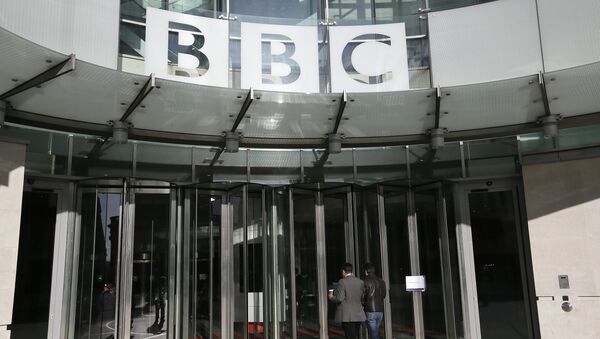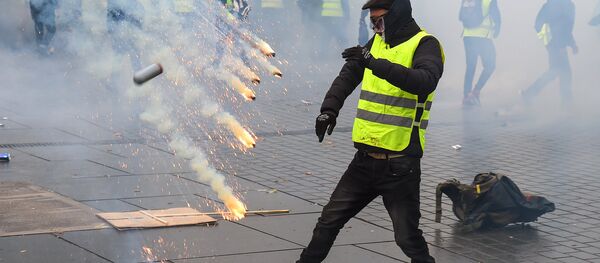"I have a question for these British media regulators and the public: how do they assess such a compilation of facts that the employees of their TV and radio broadcasters are engaged in?" the foreign ministry spokeswoman, Maria Zakharova, told the Rossiya 24 broadcaster on Sunday.
She recalled that the UK Office of Communications (Ofcom) regularly opened probes into alleged broadcasting code breaches by Russian media outlets, claiming that the investigations were triggered by the UK public’s complaints sent to the regulatory authority. Zakharova stressed that Ofcom’s allegations had no factual basis.
"How does the UK public assess the compilation that BBC journalists are involved in? I recall that the BBC is a corporation that is funded by public fees. How do they assess these absolutely non-journalistic approaches?" she went on.
READ MORE: BBC Stringer Admits Channel Craving Any Proof of Russian "Role" in Paris Rallies
Zakharova also emphasized the cynicism of journalists working for BBC, a company which "has always been advocating for an unbiased and independent approach, and professionalism as its credo."
"How can one … [while being part of] the EU common space of culture and information, be involved in such activities against their neighbour, namely, producing fakes about the protest movement in France? As if it is not people who took to the streets, but it is a ‘hand of Moscow,’ which intervened and created a whole movement of ‘yellow vests,’ and, what is more, brought it into action," she wondered.
Finally, the diplomat said that Russia intended to raise the issue of these fakes at the relevant international agencies and to send a letter to the Organization for Security and Co-operation in Europe (OSCE).
Earlier, BBC Russia correspondent Olga Ivshina admitted that the broadcaster was in the search of any proof of Moscow’s alleged masterminding the ongoing French rallies, and demanded that its journalists seek any leads that would point to Russia. Ivshina said about this in correspondence with a Russian media outlet's correspondent, who covers the rallies from the French capital, in a bid to find out whether Moscow had anything to do with the events.
Commenting on the issue, the BBC press service stated later in the day: "As the French Foreign Minister had spoken publicly about media reports of a possible Russian influence in the protests, it was perfectly reasonable for our correspondent to raise the subject. However, in the end, her reports made no mention of a possible connection with Russia at all. We stand by our impartial, independent journalism," the broadcaster said.
The statement followed The Times’ reports that hundreds of allegedly Russia-linked Twitter accounts were found fueling the "yellow vest" protests by posting pictures of injured protesters and retweeting posts connected to the unrest.
In response, the Kremlin has stressed that Russia considers the protests to be France’s internal affair, and called claims of Russia's alleged involvement slander.
READ MORE: 'Mayhem' & 'Revolution' If Brexit Not Delivered — Yellow Vests UK Tell Sputnik
France has been facing a wave of mass protests since mid-November, when the so-called yellow vests took to the streets to protest rising fuel prices and a planned hike in tax on diesel and carbon fuels. The French government has scrapped its planned hike in diesel taxes, but the "yellow vests" have since morphed into a broader movement against government policies and rising living costs.



